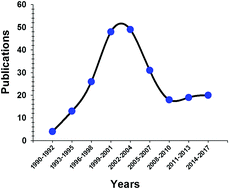C-Peptide replacement therapy in type 1 diabetes: are we in the trough of disillusionment?
Abstract
Type 1 diabetes is associated with such complications as blindness, kidney failure, and nerve damage. Replacing C-peptide, a hormone normally co-secreted with insulin, has been shown to reduce diabetes-related complications. Interestingly, after nearly 30 years of positive research results, C-peptide is still not being co-administered with insulin to diabetic patients. The following review discusses the potential of C-peptide as an auxilliary replacement therapy and why it's not currently being used as a therapeutic.



 Please wait while we load your content...
Please wait while we load your content...